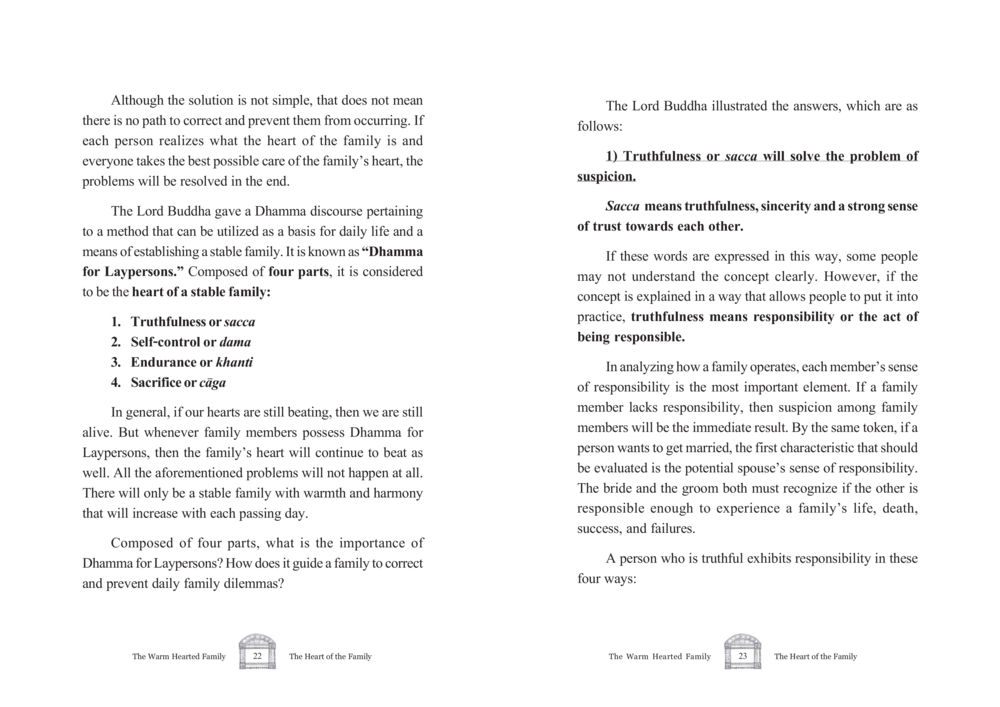Dhamma for Laypersons: Building a Stable Family : หน้า 12/207
The Warm Hearted Family : หน้า 12/207 Explore the teachings of the Buddha on Dhamma for Laypersons and its four components essential for a stable family life.
0 ครั้ง

สรุปเนื้อหา
The solution to family dilemmas is found in understanding the heart of the family and the teachings of the Buddha. Dhamma for Laypersons comprises four core principles: truthfulness, self-control, endurance, and sacrifice. These principles are vital for nurturing a stable and harmonious family life. By cultivating these values within each family member, families can prevent conflicts and foster an environment of warmth and understanding. When the family practices these teachings, they create a resilient bond, ensuring that the family's heart continues to flourish. For those seeking guidance on maintaining family stability, embracing the Dhamma for Laypersons serves as a practical approach to navigating daily challenges.
หัวข้อประเด็น
-Dhamma for Laypersons
-Heart of the Family
-Principles of Truthfulness
-Self-control in Family Life
-Endurance and Patience
-Sacrifice for Family Harmony
-Preventing Family Conflicts
ข้อความต้นฉบับในหน้า
หน้าหนังสือทั้งหมด















































































































































































































